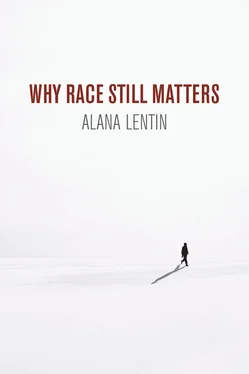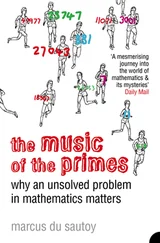In Chapter 3, I argue that on the left as well as on the right of politics there is a dangerous tendency to downplay the effects of race by dismissing those who talk about it as divisive ‘identitarians’. The constant production of outrage about the apparent excesses of ‘identity politics’ is having a negative effect on the possibilities for antiracist solidarity grounded in a race-critical politics. I explain why we should be sceptical of the intentions of those who argue that ‘making it about race’ is playing into the hands of the right.
The fourth chapter examines the ways in which the objection to antisemitism has been used as a proxy for a commitment to antiracism on behalf of all racialized people. Politicians’ proclamations against antisemitism draw attention away from the fact that it has always been an elite project. Exclusive responsibility for antisemitism is placed onto minoritized communities, in particular Muslims. Instead, in order to adequately theorize antisemitism today, we need to see it as entangled with Islamophobia. Only this will permit Jews on the left to oppose our manipulation in the service of racism and colonialism, returning us to what the theorist of decolonial Judaism Santiago Slabodsky calls our ‘barbarian’ roots (Slabodsky 2015).
In conclusion, I revisit the key point made by the book, that understanding how race matters is essential for a fuller understanding of our contemporary lives. I propose that difficult conversations about race are taking place among those whom it affects, and it is the responsibility of everyone to reject defensiveness, and to listen and engage. This is, as Stuart Hall put it, a process and a politics ‘without guarantees’, one that is all the more important for being so.
My hope is to have successfully argued that, far from anchoring us in pessimism, or a feeling that we are trapped in a history destined to repeat, it is through better understanding of how and why race matters that we can all one day be more free. But I also want you to get angry, because, far from a useless emotion (Lorde 1981), it is anger against the injustice that makes race still matter that will pave the way to that freedom; not a selective anger, but a relational one, an anger that, despite my appeal not to leave race behind just yet, motivates us to seek a day when we can do exactly that.
Конец ознакомительного фрагмента.
Текст предоставлен ООО «ЛитРес».
Прочитайте эту книгу целиком, на ЛитРес.
Безопасно оплатить книгу можно банковской картой Visa, MasterCard, Maestro, со счета мобильного телефона, с платежного терминала, в салоне МТС или Связной, через PayPal, WebMoney, Яндекс.Деньги, QIWI Кошелек, бонусными картами или другим удобным Вам способом.












